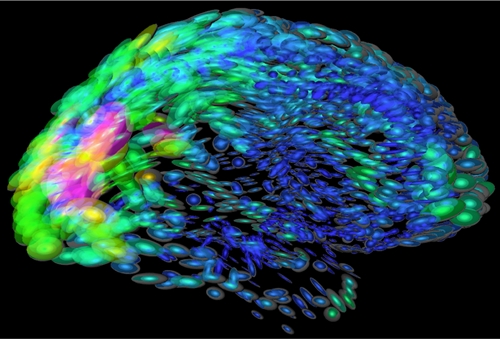2 November 2015. A new clinical trial is recruiting adolescents with major depressive disorder to test a therapy using magnetic resonance imaging impulses. The study is testing the NeuroStar TMS Therapy System, already approved for adult patients with major depressive disorder who do not respond to medications.
Depression is a widespread condition, which when it becomes persistent or severe, can interfere with normal family and work life, and lead to disability. National Institute of Mental Health estimates in 2013, 15.7 million adults in the U.S., or 6.7 percent of the adult population, suffered a major depressive episode in the previous 12 months. Data from the National Comorbidity Survey-Adolescent Supplement in 2010 show about 22 percent of adolescents suffer from severe mental disorders, half of which (11%) are mood disorders, often with symptoms different from adults.
Neuronetics Inc., in Malvern, Pennsylvania, developed its NeuroStar system harnessing magnetic resonance imaging or MRI impulses it calls transcranial magnetic stimulation that targets areas of the brain known to under-perform in people with depression. The company says the MRI impulses stimulate nerve cells in under-performing areas of the brain to release more neurotransmitters, signaling chemicals in the brain blocked or reduced in people with depression.
Transcranial magnetic stimulation or TMS therapy is given through a curved device containing a magnetic coil placed on the head and emitting MRI impulses. Each treatment lasts about 37 minutes, with treatments continuing 5 days a week for up to 6 weeks.
People receiving TMS therapies report feeling a tapping sensation on the head and hearing a clicking sound. The company reports the most common adverse effects are a temporary mild to moderate pain near the treatment area.
FDA approved the NeuroStar TMS system in 2008 for adults with major depressive disorder who do not respond to antidepressant medications. Neuronetics says more than 650 physicians now provide the therapy, which so far treated some 25,000 patients.
The new clinical trial is enrolling 100 individuals in the U.S. and Canada, age 12 to 21, with continuing major depressive disorder episodes, and who show a resistance to antidepressant medications. Participants will be randomly assigned to receive NeuroStar TMS treatments or a sham treatment, essentially the NeuroStar device without the magnetic coil. After an initial 6-week period, participants will be evaluated for symptoms of depression with a standard assessment scale.
Participants who do not improve from the initial treatments will be given an opportunity to receive or continue NeuroStar TMS treatments for another 6 weeks. Individuals taking part in the trial will then be assessed after 6 months, and receive follow-up treatments as needed during that period. The study team at 11 sites in the U.S. and 1 site in Canada, will also look for acute and long-term safety issues.
Read more:
- Novartis Licensing Depression Therapy Technology
- Antipsychotic Drug Savings Expected as Patents Expire
- Genetic Test Found to Save Drug Expense, Boost Adherence
- University Faculty Design Mood-Tracking Mobile App
- FDA Approves Four-Times-Per-Year Schizophrenia Drug
* * *


 RSS - Posts
RSS - Posts
You must be logged in to post a comment.